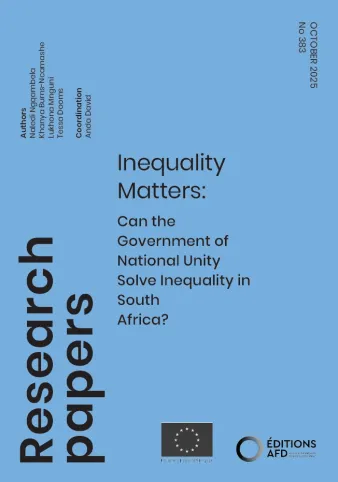Share the page
Inequality Matters: Can the GNU solve inequality in South Africa?
Published on

South Africa remains the most unequal society in the world, with persistent disparities rooted in the legacies of colonialism and apartheid. Despite three decades of democracy and redistributive policies, inequality continues to manifest along racial, class, gender, and spatial lines. This paper examines the structural nature of inequality in South Africa, focusing on the interplay between wealth concentration, unemployment, education, and policy responses. It interrogates how post-apartheid reforms—such as Black Economic Empowerment, employment equity, and social grants—have produced mixed outcomes, often enriching elites while failing to reduce systemic exclusion. Against the backdrop of the 2024 “change elections” and the formation of the Government of National Unity, the paper analyzes the ideological diversity of coalition parties and their prospects for addressing inequality. It concludes by situating South Africa’s inequality agenda within global debates, highlighting the significance of the country’s 2025 G20 presidency as an opportunity to foreground solidarity, redistribution, and sustainable development.
Useful Information
-
Authors
-
Naledi Ngqambela, Khanya Burns-Ncamashe, Lukhona Mnguni, Tessa Dooms
-
Coordinators
-
Edition
-
383
-
Number of pages
-
24
-
ISSN
-
2492 - 2846
-
Collection
-
Research Papers
-
Languages
-
English
